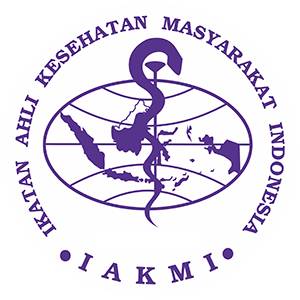The Effect of Health Education About Toileting on Knowledge, Attitude and Independence Of Children Age School In Sdn Gedongtengen
DOI:
https://doi.org/10.30787/gaster.v20i1.611Abstract
Health is a prosperous condition in the form of physical, mental and social health that is free from disease. An effort to improve health is the PHBS program. The lowest percentage was in the city of Yogyakarta, namely 59.97%. The bad PHBS comes from school children. The problem that arises in school children is not using latrines (toileting) properly. Children who do not toilet and then detained can cause the child to wet the bed (enuresis) or defecate in their pants. Objective: This study aims to determine the effect of health education on toileting on the knowledge, attitudes and independence of school age children. Method: This research method is a quantitative study with a pre-experimental design (one group pretestposttest). Data were collected by means of a questionnaire and analyzed by Wilcoxon. Results: The results of Wilcoxon analysis showed that the p-value of the knowledge variable was 0.000 and 0.000, the attitude variable was 0.000 and 0.000 and the independence variable was 0.027 and 0.006. Conclusion: The conclusion of this study is that there is an effect of health education on toileting on the knowledge, attitudes and independence of school-age children at SDN Gedongtengen Yogyakarta.
References
Aripin, and Toto Haryadi. 2016. “Melatih
Kecerdasan Kognitif, Afektif Dan
Psikomotorik Anak Usia Dasar
Melalui Perancangan Game Simulasi
Warungku.†Jurnal Desain
Komunikasi Visual dan Multimedia 1:
–50.
Aulia. 2015. “Pengaruh Pendidikan
Kesehatan Tentang Personal Hygiene
Terhadap Pengetahuan Dan Sikap
Siswa Di SDN Rembes 1 Dusun
Watugimbal Kecamatan Beringin
Kabupaten Semarang.†Jurnal
Keperawatan.
Bujuri, Dian. 2018. “Analisis
Perkembangan Kognitif Anak Usia
Dasar Dan Implikasinya Dalam
Kegiatan Belajar Mengajar.†Jurnal
Literasi 9: 37–50.
Buston, and Septiyanti. 2017. “Hubungan
Pendidikan Dan Sikap Keberhasilan
Toilet Training.†Jurnal Keperawatan
: 18–27.
Depkes. 2016. “No.†www.depkes.go.id
(August 6, 2019).
Gani, Husni Abdul, Erdi Istiaji, and Prita
Eka Pratiwi. 2015. “Perilaku Hidup
Bersih Dan Sehat (PHBS) Pada
Tatanan Rumah Tangga Masyarakat
Using.†Jurnal Ilmu Kesehatan
Masyarakat: 25–35.
Hermanto, and Eko Yulianto. 2018.
“Pengaruh Pendidikan Kesehatan
Personal Hygiene Terhadap Tingkat
Pengetahuan Dan Sikap Masyarakat.â€
Jurnal Keperawatan Komprehensif
(1): 1–6.
Nurjanah, and Fitriani. 2017.
“Meningkatkan Kemandirian Anaka
Usia 4-5 Tahun Melalui Toilet
Training Di PAUD Al-Amin Bimasda
Kecamatan Setu Tangerang Selatan.
Jurnal Pendidikan Anak Usia Dini.â€
Jurnal Keperawatan 1: 1–6.
Pakpahan. 2017. “Pengaruh Pengetahuan
Dan Sikap Terhadap Perilaku
Masyarakat Pada Bank Syariah Di
Wilayah Kelurahan Sei Sikambing
D.†3: 345–67.
Putra. 2014. Keperawatan Anak Dan
Tumbuh Kembang (Pengkajian Dan
Pengukuran). Yogyakarta: Nuha
Medika.
Rakhma, Eugenia. 2017. Menumbuhkan
Kemandirian Anak. Yogyakarta:
Stietto Book.
Sintawati, Mandasari. 2016. “Pengaruh
Penyuluhan Tentang Stimulasi Toilet
Training Terhadap Perilaku Dalam
Toilet Training Pada Ibu Yang
Mempunyai Anak Toddler Di Dusun
Pundung Nogotirto Gamping
Sleman.â€
Titisari, Lintang. 2015. “Hubungan
Dukungan Keluarga Dengan
Kemandirian Personal Hygiene Anak
Prasekolah Di TK ABA Mlangi
Gamping Sleman Yogyakarta.â€













